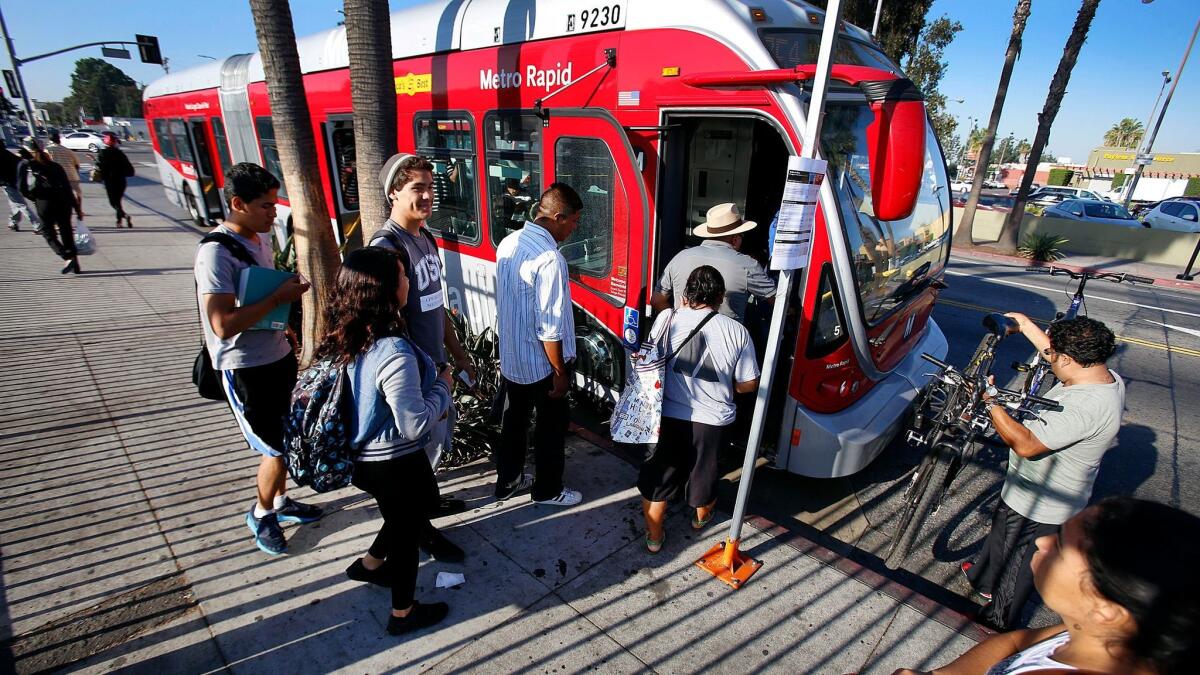Letters to the Editor: Why bus-only lanes could make traffic worse in L.A.

- Share via
To the editor: Your editorial supporting bus-only lanes on arterial roads is based on exactly what analysis of the purported benefits versus the economic and environmental costs?
The Southern California Assn. of Governments studied the concept of exclusive arterial bus lanes back in the 1990s and found that while things like signal preemption, longer stop spacing and better stop placement could help, bus-only lanes had almost no impact on raising speeds. In fact, bus-only lanes could actually result in reduced bus speeds in certain corridors because of greater congestion at intersections.
There are also the neighborhood impacts of traffic backed up into residential areas and vehicles trying to avoid arterial congestion. All of this leads to higher emissions because of stop-and-go traffic.
I support more frequent bus service, signal improvements and building better stops. Arterial bus-only lanes may be the “flavor of the month” in transit planning; problem is, there’s little actual evidence to support the notion that the benefits will exceed the very real costs.
Bob Huddy, Pasadena
The writer is a retired transportation economist and planner.
..
To the editor: Metro’s plan to reallocate rather than expand bus service is the equivalent of rearranging deck chairs on the Titanic. Metro should make best use of what it has, but it does not have enough buses.
After 11 years of losing an average of 11 million trips per year, the terms of the 1995 federal consent decree immediately reversed this trend, producing an average annual increase of 12 million trips and a 36% increase in ridership from 1996-2007. This required increasing bus vehicle revenue-miles by 19% during this period and expanding the bus fleet by 31%.
Metro began losing riders again when the consent decree expired in 2007, because it pulled back on bus service to accelerate rail construction. Metro will continue to lose riders until it expands bus service.
James E. Moore II, Los Angeles
The writer is director of USC’s transportation engineering program.
More to Read
A cure for the common opinion
Get thought-provoking perspectives with our weekly newsletter.
You may occasionally receive promotional content from the Los Angeles Times.








